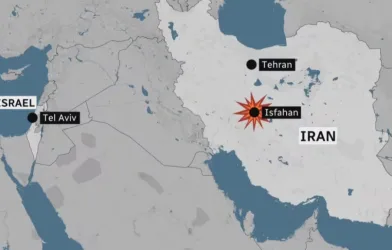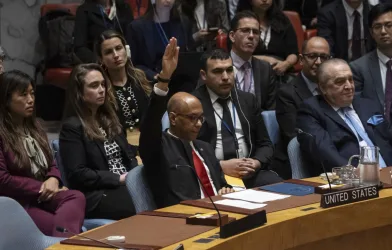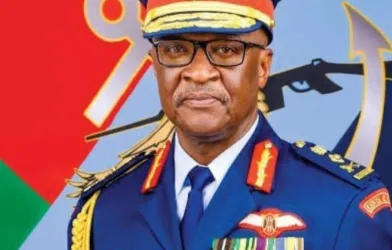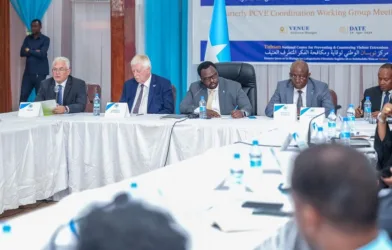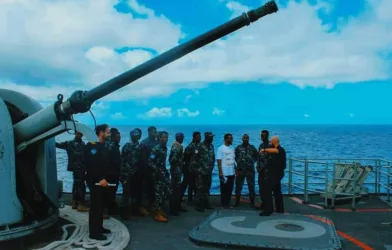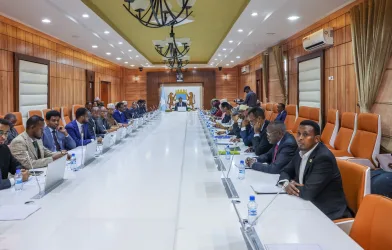
Last week, a U.S based bank, Merchants Bank of Carlifornia NA, announced that it is closing the bank accounts of companies that transfer money to Somalia, despite calls for reconsideration. The move stunned the entire Somali community across the world and the international community that supports the state, calling the decision a ‘’catastrophe’’.
Now they are concerned for their relatives’ welfare and effects of the shutdown have started to emerge.
Somalia lacks an international banking system which makes difficult for citizens abroad to send money back home to their relatives. So, they use remittances to send the money every month that provides the families to meet their immediate needs for food, shelter, clothing, and other basic necessities as well able to set up small businesses, send children to school and support their communities during difficult moments.
However, since the central government of Somalia was overthrown in 1991, majority of the Somali people have been relying on money sent by relatives and friends living abroad becoming the single most important source of income.
It is believed that each year Somali citizens across the world send about $1.3 billion back home. These flows represent a significant share of Somalia’s economy and help to reduce Somalia’s reliance on assistance from foreign governments and international organizations.
This exceeds the total sum for humanitarian aid to Somalia, which reaches $800 million at its highest.
Somalis based in the U.S. send approximately 214 million dollars each year to support their families, relatives and friends that have been affected by the civil wars, nearly the same amount the U.S. sends in foreign assistance to Somalia estimated at 242 million dollars, a report delivered by international organizations says.
 More than 150 million dollars are sent from the Britain.
More than 150 million dollars are sent from the Britain.
Following the 9/11 attacks in the US, Somali money-transfer companies came under international scrutiny. The biggest company, al-Barakat, was shut down after the US government linked it with terror groups – a charge vehemently denied by the company.
In the latest move by the US bank, In fact not only Somali Somalis have criticized. Advocates, lawmakers and a U.S congressman urged the banking regulators to find a solution to this issue.
The Revival of Extremists
While regulators believe the money is being channeled to the extremists, the Somali government has warned establishment of a black market which it believes will make much easier money to be sent to the beleaguered militants.
Many believe the move will force the prolific remittance industry underground, and play directly into the hands of terror groups such as al-Shabaab.
The possibility of black market emergence in a country where there was no an effective government for two decades is high.
Government officials have also said this move can be a threat to the country’s stability after two decades of civil war and its progress towards sustainable development.
‘’ This is an advantage for the militants because they will get funds through the black market and will enable them to launch dangerous attacks,’’ said a member of the Somali Federal Parliament, who spoke on the condition of anonymity.
Rep. Keith Ellison, who represents Minnesota’s 5th Congressional District said in a letter to the U.S secretary of state John Kerry and Treasury Secretary Jack Law that this move will have an impact to the country’s stability rather than addressing other fears.
“A disruption in remittances could reverse the limited gains that the Somali government and the international community has made to rid Somalia and the greater Horn of Africa of terrorism,” Ellison said.
In the UK, no Somali API has ever been accused of money-laundering or terrorist financing by the regulatory authorities – despite increasing regulation since the 2008 global banking crisis. Preventing accredited organizations from operating will constrain their ability to function and is likely to force remitters to use unregulated or illegal channels, beyond the reach of the financial regulators.
Somali Prime Minister Omar Abdirashid called for the US banks to review on this decision which is a major lifeline for hundred thousands of Somali families. He added that despite of the limitations they are faced by the government, but there should be a credible solution which is legitimate and transparent.
“I have personally spoken to the US Government on this pressing issue and repeated my calls to US banks to reconsider their decision and continue to support Hawalas money transfers. No one in the money remittance sector disputes the vital importance of remittances to developing countries and I fully understand the limitations imposed on them by government regulations,’’ he said in a statement.
Remittances vital role in the 2011 famine
Remittances do not only make a significant contribution to Somali household income but also to the food security in the country.
Continued support from the Somali diaspora is essential for Somalia to successfully emerge from its protracted humanitarian emergency and political crisis and build the foundations for its long-term development.
During the 2011 drought and food crisis in Somalia, the generosity of the Somali diaspora played a vital role in helping Somali families survive. Almost 260,000 people, half of them young children, died of hunger.
A UN report released in 2013 admits the world body should have done more to prevent the tragedy. Some commentators argue that International aid organizations are solely responsible for the crisis in Somalia.
Horrific as it was, the situation would have been much worse had the Somali diaspora been unable to send help. One Somali- American described providing increased financial support not only for his immediately family in Somalia, but also for casual acquaintances who called to ask for food money.
Somali communities abroad such as Europe, North America and Australia raised funds for the famine victims and the possible way to deliver the money was through the remittances. More than $300,000 US dollars was sent to the country by the diaspora during that period.
‘A new catastrophe’
 With no immediate solution in sight, people like Hawa Jama, a widow with seven children is worried that she will not be able to feed her children and send them to school in the upcoming weeks. She is being supported by her cousin sister who lives in Ohio.
With no immediate solution in sight, people like Hawa Jama, a widow with seven children is worried that she will not be able to feed her children and send them to school in the upcoming weeks. She is being supported by her cousin sister who lives in Ohio.
‘’ I don’t know what will happen to me and my children after few weeks when our monthly bill is over….. My husband passed away seven years ago and I have been financially supported ever since by my cousin sister residing in the US. Am not able to work because am not educated. This decision is a like a new catastrophe,’’ she says.
Somalia was worst hit by famine first in 1992 causing the death of more than 200,000 people and in 2011. Most of the Somalis who lived those years are not able to forget those difficult days.
Different Somali communities that I discussed with this issue agree that it will lead to another horrible situation somehow similar to the previous famines and increase poverty in the country.
The government of Somalia which is still struggling to build its institutions does not have the capacity and resources to address these problems and even minor ones.
Meanwhile, Somalis from all walks of life and countries continue to voice their deeply-felt concerns about the consequences of this move, a rapid solution to this situation is massively important whether it comes from the US government or the Somali government which is not yet strong enough to develop International banking system.
What is needed is a concerted, collaborative effort to make sure Somalis can safely and freely support their families back home.
Remittances are not only important for the Somali families who receive money from abroad, but it is also a major contributor to the country’s economy which is recovering from over two decades of civil war.
Ayub Abdirahman
Horseed Media
Follow the writer on twitter: https://twitter.com/AbdirahmanAyub
U.S banks move ruining the lives of families in Somalia
Published: February 15, 2015


